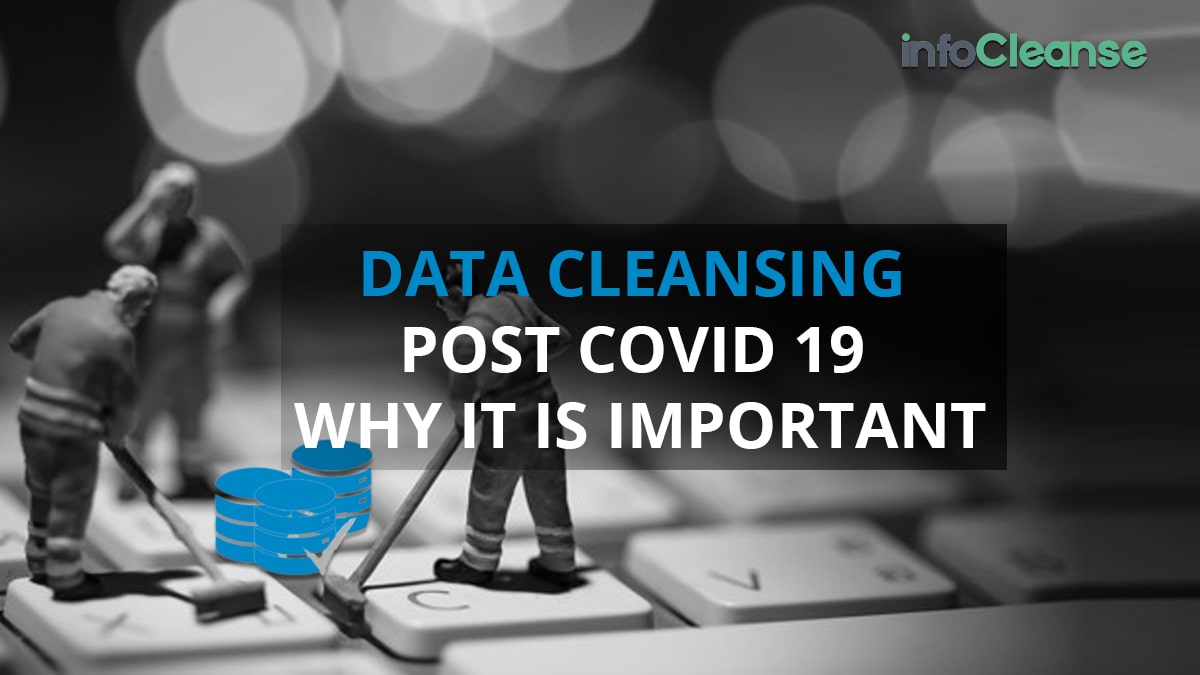
Throughout the years, data cleansing has significantly played an important role in both data management and data analytics and it continues to develop rapidly to date.
Moreover, data cleansing, particularly in big data continues to remain a challenge because of its high & increasing volume, variety & velocity of data in numerous applications.
Data cleansing is no doubt an important task but another vital reason for its importance is to keep businesses in check with GDPR. However, cleaning data is a bulky process as different individuals/companies have several ways for data cleansing tasks.
Put it simply, data cleansing means the procedure of eliminating, upgrading & editing information found within a given database for maintaining efficient data quality.
This approach is something that can enable access to segmented along with accurate data to leverage it for multichannel marketing initiative & business operations.
Data fluctuates constantly, hence, over time, data within a specific event may become less relevant while data quality can also suffer due to lack of attention in terms of keeping it current and updated – which was quite common among businesses that suffered during the pandemic.
This highlights how availing data cleansing can help businesses address the plethora of challenges put forward by COVID-19 along with daily challenges like troubleshooting, manual data correction, incorrect invoice data, and error rectification.
Oddly enough, the hygienic practice of handwashing amid covid-19 has evoked a much-needed reminder of cleansing data for efficient data science. Similar to hand washing, data can only be reliable after it’s cleaned thoroughly & methodically.
When data analytics remain inaccurate, it can lead to misguided decision making. This is something that can expose and land the industry in compliance issues as numerous decisions are subjected to requirements for ensuring data accuracy and timeliness.
Although, reducing the potentiality of bad-data quality can be availed through process management and architecture, however, it cannot be eliminated.
The only foreseeable B2B solution left is detecting and removing or correcting those errors & inconsistencies present in a database/dataset and make it usable.
Here is a five-step data cleansing process to remember for better data maintenance. (Unfortunately, this will take longer than hand-washing.)
Not only does data cleansing remove errors and inconsistencies but it can also assist in running a much more efficient data operation. After all, fewer errors generally mean happier customers along with fewer frustrated employees.
To avert the impact and damage of COVID-19, the majority of businesses that were originally not home-based had to become one. This naturally means those businesses had to adapt or level up, hence, both system hardware & software were organized in an individual’s home.
Businesses were also unable to receive and take office calls and in the majority of organizations, a massive amount of data was brought home. This adaptation, however, did not reduce the very importance of data cleansing.
Personal data is extremely crucial and despite being stationed at home, making sure all customer and other personal data remains secure, safe, and updated is vital for any type of business. As stated by data junkie and Ringleader CRO, Gregg Thaler, “Contact data will age like fish and not wine – the older it gets, the worse it is.
This is because all the regular GDPR rules are still applicable amidst the pandemic and it is of great importance that each data you hold is secured privately and kept up-to-date.
This makes database cleaning an extremely valuable service for your company to consider. Realistically speaking, a huge percentage of businesses shy away from data cleansing or do not take it to its recommended extent.
This could be the combined result of resources (such as lacking in terms of staff) and time or being unaware and weary of the entire process.
To summarize, if data cleansing seems to be an ideal need for your business, it can and will prove to be highly beneficial and not to forget, profitable for your business in the long run. After all, database cleansing is something that can sustain and future-proof businesses as data continues to hold great importance in some form or the other.
Enterprises today navigate a complex business landscape combined with rapid technological evolution and fierce competition.…
In the ever-evolving B2B ecosystem, staying ahead of the curve is becoming a matter of…
From time immemorial, lawyers have played a crucial role in shaping our social fabric. With…
A pioneer in the automotive industry, the USA was the first country in the world…
The global software spectrum is so diverse and versatile that there is never any dearth…
What is the first thing that crosses your mind while visualizing a healthcare facility? The…